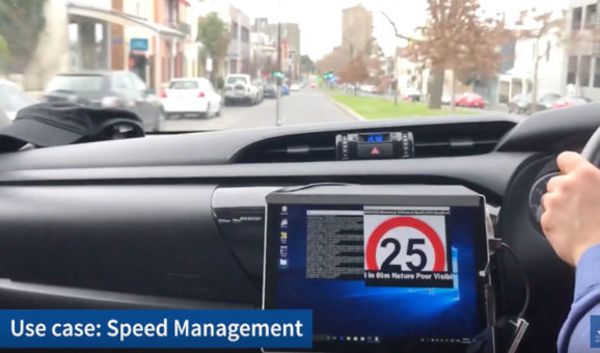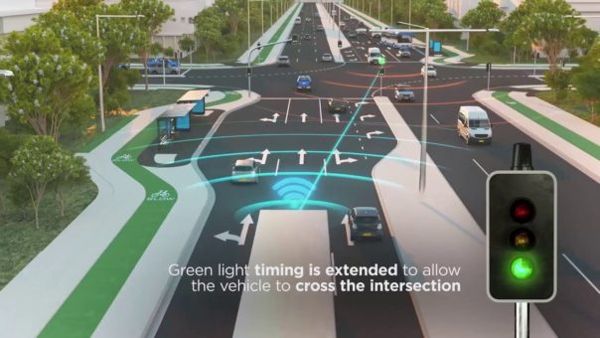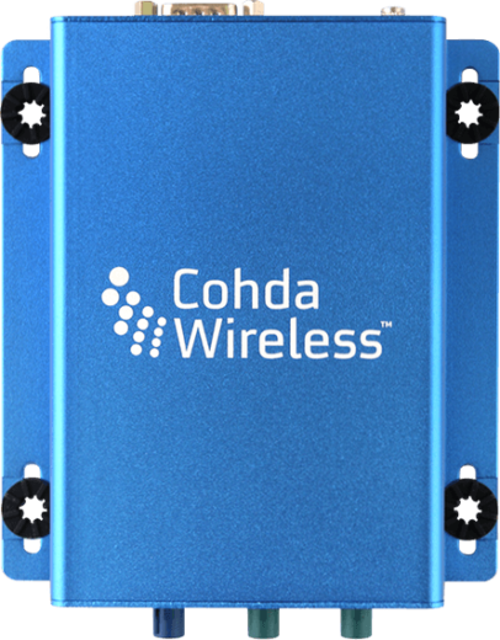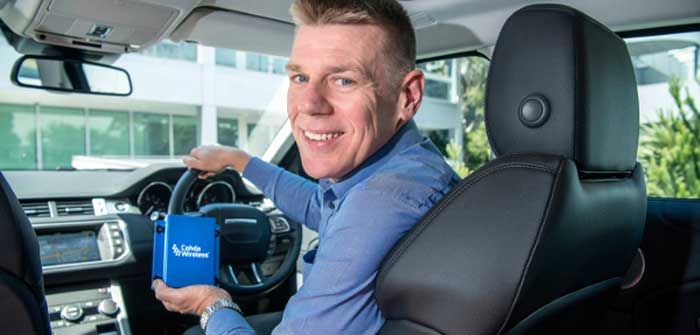Cohda Wireless has been named as a key partner in the Ipswich Connected Vehicle Pilot, Australia’s largest trial of Cooperative Intelligent Transport Systems (C-ITS) technologies, being delivered by the Queensland Department of Transport and Main Roads (TMR).
A core component of the pilot is the field operational test of several C-ITS safety applications, including vehicle-to-infrastructure (V2I) and vehicle-to-vehicle (V2V) internationally compliant C-ITS technologies. The trial will take place in the city of Ipswich and its purpose is to prepare the state of Queensland for the emergence of advanced vehicle technologies and their associated benefits of improved safety, mobility and reduced environmental impact.
The Ipswich CV pilot will involve around 500 public and fleet vehicles, which will be retrofitted with Cohda’s MK5 On-Board Unit (OBU). As part of the trial, arterial and motorway infrastructure in and around Ipswich will be fitted with C-ITS roadside units (RSUs) that will ‘talk’ to the Cohda OBU in each of the participating vehicles. As was announced earlier this week, the Austrian traffic technology company Kapsch TrafficCom will be supplying the RSUs.
The Cohda OBUs are designed to exchange data at high speeds over extended distances, permitting class-leading reactions times to potential hazards and safety-critical scenarios. The RSU and in-vehicle OBU devices will communicate with each other to share safety-related warnings and advisory messages with drivers. The use-case applications being trialled include:

• Emergency braking warning (V2V) – Alerts drivers to a cooperative vehicle braking hard some distance ahead;
• In-vehicle speed warning (V2I) – Provides drivers with information about active, static or variable speed limits, and then alerts them if they are exceeding that limit;
• Turning warning for bicycle riders and pedestrians (V2V) – Alerts drivers to pedestrians or bicycles crossing at an upcoming intersection;
• Road works warning (V2I) – Alerts drivers to upcoming roadworks, giving them time to slow down or change lanes;
• Back-of-queue-warning (V2I) – Provides drivers with information about upcoming traffic congestion;
• Red-light violator warning (V2I/V2V) – Alerts drivers that another cooperative vehicle is likely to run a red light across their path at the intersection ahead;
• Red light warning (V2I) – Alerts drivers if it is likely that they will drive through a red light ahead unless they brake;
• Stopped or slow vehicle warnings (V2V) – Alerts drivers of an impending rear-end collision with another cooperative vehicle ahead of them;
• Hazard warning (V2I) – Alerts drivers to upcoming hazards, such as water on the road, road closures or a crash.
Cohda’s role includes the provision of the display that will be incorporated into the dashboard of each participating vehicle to provide alerts and messages to the driver.

“We firmly believe that the Ipswich Connected Vehicle Pilot will contribute significantly to the advancement of a connected and cooperative road transport environment in Australia and we are delighted to be a partner in it,” explained Dr Paul Gray, Cohda’s CEO.
“We are particularly excited about being involved in an initiative of this scale and magnitude that has connectivity at its core. We believe that connecting road users and infrastructure is critical.”






